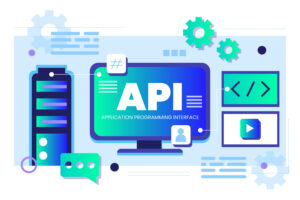
With web technologies becoming more intuitive and at the same time more advanced, novice web designers and developers will need some guidance in choosing the right framework when developing a website for a client. Of course, it is important to understand what a framework is, and the advantages and disadvantages of using different types of frameworks.
The web framework can be defined as the backbone or skeleton on which a website or web app is built. Whether it’s a simple blog page or a complex app, all of these applications require a set of code that needs to be written, and for that, the code needs to fit within a framework. The developers and coders over at Kodework in Norway and India are proficient in various web frameworks such as Flask or Django and switch between these frameworks depending on the project and user requirements. With their help, we’ve put together a few points to help you choose the right framework for your application.
It should preferably be open-source
Open-source frameworks are usually preferred by developers because they are developed for and by programmers and web developers. These developers form a worldwide community who not only actively use, but also develop the code to the framework that is available online for free through forums such as GitHub. Because of this, even novice developers can learn a lot through these highly active support forums.
Open-source means free
By virtue of the fact that the framework is open-source and available to everyone, this usually means that it is free, so if you’re just starting out or working with multiple clients, you can manage to cut costs.
Should be supported by a large community
You should be able to get help whenever you need it, which is another key reason why open-source frameworks are preferred by developers. There are many dedicated forums for specific frameworks that are often very active. Looking for help has never been easier.
A good framework should be customizable as per project design needs
Once you are familiar with a particular framework, you will want to work with it more often because this will cut down your development time and make you more productive. That being said, you will want to choose a framework that is versatile enough to handle different types of projects depending on your client requirements.
The framework should support all browsers
This one usually goes without saying, but we feel it’s necessary to include. Even though Google Chrome is a widely used browser, and newer browsers like the new Microsoft Edge and even Brave are built using the Chromium base, there are other popular browsers such as Safari on Apple products, or other mainstays such as Opera that are still widely used. You will want to choose a framework that supports the majority of popular browsers.
A good framework should enhance all important HTML elements
Finally, when working with a framework, you will want to ensure that all your important HTML elements are supported and enhanced. Functionality in HTML5 is improving daily, and you will want to ensure that you work with frameworks that are future-ready.
So, are you ready to choose the right framework for your next project? Or maybe you have a task that requires a highly professional website design? You can reach out to the professionals at Kodework at www.kodework.com. Find out more about the exciting world of Web Development by checking out our Web Design Guide – Best Guide for 2020.


